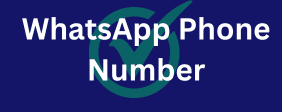It is not always necessary to answer every question asked. Sometimes the recipient of the content can answer it themselves, and in many cases the answer is so obvious that there is no point in quoting it. A rhetorical question is based on these elements.
Contents
- Rhetorical question – what is it?
- Rhetorical question – function and use in content creation
- An example of a rhetorical question in practical application
- Biased vs. Rhetorical Questions – The Most Important Differences
Rhetorical question – what is it?
What is a rhetorical question? This is a special figure of speech, based on rhetoric, which is a question that does not require an answer . It is usually based on obvious facts. The answer most often appears in the question itself or is so clear that the reader is able (in the context of the content or by analyzing the question itself) to indicate the solution independently.
Most often, rhetorical questions have a deeper philosophical meaning, and they also encourage deeper reflection on a given topic . To a large extent, they draw attention to a given fragment of text, prompting the recipient to stop and look for an answer to a specific issue. A well-chosen example of a rhetorical question allows for significant reinforcement of a fragment of text.
Rhetorical question – function and use in content creation
You already know what a rhetorical question means. What are the functions of using this stylistic figure? It can significantly change the reception of content, including that used in marketing. This applies to any type of text, from block texts, through product and category descriptions, short slogans, campaign slogans, as well as content in social media.
- It encourages deeper, more extended reflection on a given topic – a rhetorical question causes the recipient to think longer about the meaning of the statement, answering the question on their own.
- It allows you to draw the recipient’s attention to a specific fragment of the text – the use of rhetorical questions makes the recipient interested in a given fragment of the text, and thanks to this, for example, they can pay attention to the product indicated there.
- It strengthens the power of the statement by emphasizing the importance of certain thoughts – it allows to emphasize the importance of a given fragment of the text. A question can emphasize that it is the most important in the entire content or has great significance for other parts of the text.
